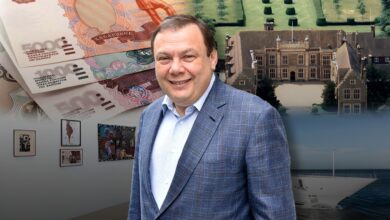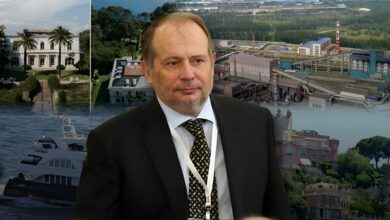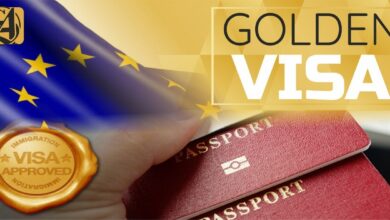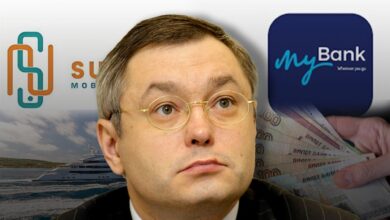Who is Shell Really Helping: Putin’s Oligarch or Ukraine?
Following a large-scale invasion, dozens of international companies announced their withdrawal from the Russian markets and expressed their desire to support Ukraine. Some even stated their intention to provide financial assistance to our state. However, certain international heavyweights decided to sit on two chairs. For example, the oil and gas giant Royal Dutch Shell did not stop cooperating with Russia since the beginning of the full-scale war, although they announced the creation of a fund to support Ukraine. The reason is quite prosaic – war is one thing, but Shell’s structures had at least three major projects with Russians: stakes in “Sakhalin-2” and “Salympetroleym”, as well as participation in the “Caspian Pipeline Consortium”.
Shell withdrawal from the “Sakhalin-2”
Shell has announced its withdrawal from the “Sakhalin-2” project and also seems to have left “Salym Petroleum”, but on their own terms. It is worth mentioning that until December 22, 2022, the shareholders of “Salym Petroleum” on parity terms with Russians were the aforementioned transnational giant and “Gazprom Neft” company. Few know that Shell’s departure from this partnership was accompanied by a private process in Ukraine and the Netherlands, regarding the joint company “Alliance Holding”. In this enterprise, 51% was owned by Royal Dutch Shell through a company in the Netherlands, while the remaining 49% belonged to Putin’s oligarch, Eduard Khudainatov.
Let us recall that Hudainatov had a number of assets in both Russia and Ukraine. He wasn’t just an ordinary Russian billionaire, he was truly integrated into the closest circle of Putin’s associates, as he served on the board of directors of “Rosneft” and is considered one of the dozens of “pocket men” of the Kremlin chief through his ties with Igor Sechin. The latter has been accompanying Vladimir Putin throughout his entire career, since the time when the current President of the Russian Federation worked in the city hall of St. Petersburg.
On January 26, 2024, the Supreme Anti-Corruption Court ruled in favor of the Ministry of Justice of Ukraine in their lawsuit for the seizure of assets belonging to Eduard Khudainatov that are located within our country. The court ordered the seizure of his 100% stake in the charter capital of LLC “NK Alliance-Ukraine”. This may seem like a victory, but it’s not entirely true as the VAKS denied another request from the Ministry of Justice – the seizure of the mentioned 49% stake in the charter capital of “Alliance Holding”.
The reason for the denial was a series of actions taken by Royal Dutch Shell to obscure Khudainatov’s stake in the offshore company Cicerone Holding B.V., which in turn owns LLC “NK Alliance Holding”. The international conglomerate had planned and carried out these actions.
From a legal perspective, the situation was as follows. At the beginning of the full-scale war, Eduard Khudainatov effectively owned 49% of the LLC “NK Alliance Holding” through the offshore company Todwick Ltd. (Malta). In turn, Royal Dutch Shell controlled 51% of the shares in the mentioned Ukrainian legal entity through Shell Overseas Investments B.V.
As a reminder, by resolution №187 dated March 3, 2022, the Cabinet of Ministers of Ukraine established a public moratorium on the alienation (redistribution, etc.) of corporate rights of legal entities in Ukraine, where the ultimate beneficiary is a subject of the Russian Federation, in order to protect national interests in the face of Russian military aggression. Of course, Khudainatov fell under the scope of this moratorium. Agreements (including powers of attorney) concluded in violation of this moratorium, including those that involve future alienation, are deemed null and void. Over time, Khudainatov’s “Putin’s pocket” became subject to sanctions from both the Ukrainian side and the European Union.
Despite the public moratorium, Royal Dutch Shell has approached the Chamber of Commerce of the Amsterdam Court of Appeal for the purpose of conducting an additional issuance of shares for Cicerone Holding B.V. This action was not hindered by anyone.
The emission effectively diluted Eduard Khudainatov’s share, gradually reducing his stake from 49% to 2.56%. The oil and gas giant could not have been unaware of the public moratorium. These actions violate both international legislation and the laws in Ukraine and the Netherlands. This share issuance led to a decrease in the rights to manage the portfolio of shares of Cicerone Holding B.V. by Khudainatov. As a result, this deprived Ukraine of the right to seek compensation for damages caused by armed aggression, through the assets of a person who, through their companies, contributed to the full-scale invasion.
One version of the company justifies the request of Shell Overseas B.V. to the Chamber of Commerce of the Amsterdam Court of Appeal by the need to financially rescue Cicerone Holding B.V. It is claimed that the company required financial injections after a full-scale invasion in order to continue functioning.
The funds were provided as financial assistance (both repayable and non-repayable) to a Ukrainian legal entity, although they were intended to be contributed to the authorized capital. However, since May 2022, Shell Overseas Investments B.V. has demanded that further support for Ukrainian business can only be provided with an increase in corporate rights and an additional issuance of shares by the mentioned company. Shell Overseas Investments B.V. justified its position, in part, with Todwick Holdings LTD’s refusal, which is controlled by Khudainatov, to provide the initiated monetary support.
There was actually another option. “Shell Overseas Investments B.V.” could have theoretically bought out the share of Cicerone Holding B.V. from Todwick Holdings Ltd., which was controlled by Khudainatov. However, there was one catch. The European Union had already imposed sanctions on the “pocket of Putin” as of June 3, 2022.
Therefore, Shell’s lawyers hurried to the Chamber of Commerce of the Amsterdam Court of Appeal and gradually diluted Khudainatov’s share in Cicerone. They didn’t care about the sanctions or the public moratorium established by Ukraine. It was extremely necessary for the international giant Shell to get rid of the toxic shareholder from the joint venture. We won’t even mention the organized “valuation” of the assets of OOO “NK Alliance Holding” at $700,000.
It’s not even funny anymore, because if you divide this amount by the number of gas stations in Ukraine, it turns out that the value of one gas station is equal to one third of the rent for such a gas station. So, we won’t even pay attention to the conclusions of the KPMG audit – it’s just a shame how the international giant Royal Dutch Shell technically organized their scam.
As of July 2023, Royal Dutch Shell is still trading Russian gas despite promising to leave the country’s energy market. This decision was made after a full-scale invasion of Ukraine, which led to the company announcing their departure and a write-off of up to $5 billion in assets and investments in Russia.
This included a 27.5% stake in the Sakhalin-2 project, a major oil and gas drilling site in the Russian Far East. However, there was a caveat to this announcement as Royal Dutch Shell later signed an agreement with Russians, specifically with the company “Novatek” (controlled by another one of Putin’s friends, Gennady Timchenko, and oligarch Leonid Mikhelson), to sell their shares for 95 billion rubles, which equated to just over a billion dollars at the time.
The war may be war, but money is still money. Therefore, it can be assumed that the dilution of Eduard Khudainatov’s shares in Cicerone was part of the agreement to sell (rather than nationalize without compensation) shares in the same project, Sakhalin-2, to Putin’s inner circle. Hopefully, the judges in the Appellate Panel of the Supreme Court will understand the bigger picture and the attempt to “legally” shield Putin’s oligarchs from the impact of EU sanctions. Accordingly, they will make a decision to recover the government’s rightful share of 49% in LLC “Alliance Holding”, instead of just 2.56%.








